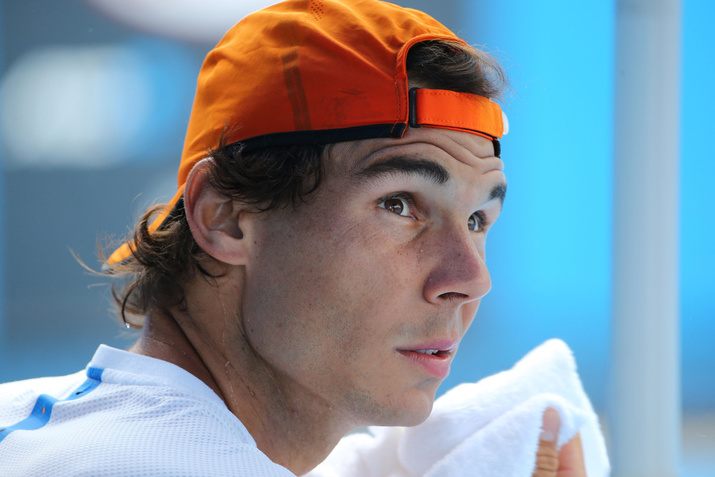Don't miss any stories → Follow Tennis View
FollowUnderstanding Nadal's Lopsided Loss to Berdych
Comebacks aren't easy.
This is a lesson that most Nadal fans haven't really had to learn, although the more dedicated ones have probably noticed it already.
Comebacks aren't easy.
No player, not even Rafael Nadal, can just waltz onto a tennis court and play like one of the best ever. It just doesn't happen. It takes hours upon hours of devoted practice, training, and the experience from actual match play before even the most talented players can compete on the highest level. Which is why, if a player has missed significant time due to injury, he cannot just come back and immediately dominate.

Many people think that Nadal is the exception to this rule. He has missed significant time to end a season twice before in his career. Tendinitis in his knees forced shortened campaigns in 2009 and 2012 (including missing the 2013 Australian Open). He went on to come back and win three Grand Slams in 2010 and two in 2013.
Those are the easy things to remember. It's easy to think that the trend with Rafa is that he misses a few majors and can therefore rest up and win the next few majors when he comes back. It's easy to think that, for Rafa, comebacks have been easy. But they haven't been. They never are.
Nadal's 2010 began with victories over overmatched opponents, granted. But it also contained losses to Nikolay Davydenko, Andy Murray, Ivan Ljubicic, and Andy Roddick. Those aren't bad losses at all. But they are matches that Rafa is usually expected to win because he is, well, Rafa. But in the early part of that comeback before he got any real rhythm when he switched to clay, and another injury in Melbourne didn't help, he couldn't beat other top opponents.
The fact that comebacks aren't easy was more apparent in 2013. Rafa lost the Vina del Mar final in his first tournament back to Horacio Zeballos. He dropped a set to Martin Alund the following week. After a few weeks of clay, though, Rafa was back in rhythm for match play and back to being the dominant Rafa that we usually expect.
So what does this teach us? First of all, we shouldn't read too much into the loss to Tomas Berdych. We already saw the lack of match experience and rhythm affect Nadal when he played Tim Smyczek. He played well against Kevin Anderson, but Anderson was not in top form that match, and Nadal read his serve way too well. When Nadal came up against a true top opponent, Berdych just turned out to be too much.
Let me be clear that I am in no way taking away from what Berdych just did. He had lost to Rafa in their last 17 meetings. Berdych played an incredible match, attacking all of Rafa's weaknesses and playing his game to perfection. He looks to be in a form that could actually challenge for the title here. We don't have to detract from Berdych's accomplishment in order to point out that there is no reason to worry about Rafa having dropped a step here.
And that is part of the point. Once Nadal gets some clay tournaments under his belt and gets the match play he needs, he will be right back to being Rafa again. Sure, he's getting a little older. And yes, the field is getting better. But this loss (and certainly the lopsidedness of it) comes in part from the fact that Nadal hasn't played competitive tennis in months. In short, comebacks aren't easy.










